This blog is also available to read in Arabic.
Although the health sector in Syria is not directly targeted by economic sanctions, it is indirectly affected by the sanctions imposed on by other sectors, which added to other accumulated damages to this sector during the last decade. This article attempts to highlight the most significant strains on the health sector resulting from sanctions, as well as how the recent global COVID-19 crisis made a bad situation worse.
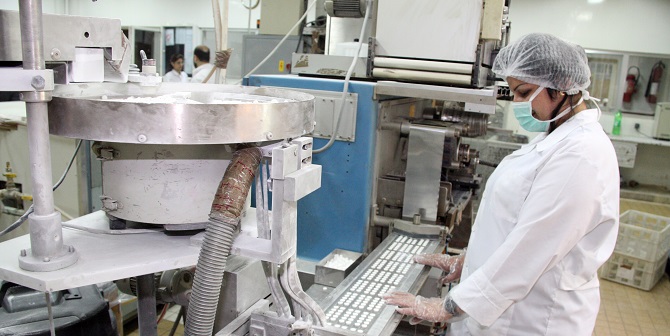
Western sanctions on Syria are currently entering their tenth year. Amidst rising geopolitical tensions, three options present themselves; the first is for the total, unconditional lifting of these sanctions, with the aim of helping the Syrian government deal with challenges facing its health care sector, including the growing threat posed by the current coronavirus pandemic. The second option is for these sanctions to remain in full operation; with the United States’ Caesar Act, legislation which tightens the sanctions on Syria, expecting to come into force in June, this option would give rise to the start of a new phase of economic strangulation in the country. The third option, which is currently being deliberated, lies in the partial and conditional lifting of certain sanctions, in a way which guarantees, first and foremost, a humanitarian benefit for the Syrian people.
Whatever direction is taken in the coming period, there is growing consensus that people living inside Syria have borne the brunt of the majority of these sanctions, even if particular individuals or institutions have been the direct target. The Syrian government maintains they are unilateral, unlawful measures, while western governments consider them a way to punish the government and apply political and popular pressure.
Rather than focusing on political objectives and justifications, looking at the impact that some of these sanctions have had on access to basic necessities such as food and medicine, which have already been severely affected by the war, will help to effectively assess the humanitarian consequences of these measures. This is especially important given that whenever sanctions have been enforced, whether by a unilateral decision or by the Security Council, it has always been the people who have paid the biggest price – indeed; they are often the sole victim.
With the threat of coronavirus currently dominating global priorities, we shall look at the impact the economic sanctions have had on the Syrian pharmaceutical industry in recent years. While these sanctions are claimed to exclude the healthcare sector, practically some of its measures have adversely affected the sector’s development, and its access to that which it requires to function.
The Chokehold of War and Sanctions
The pharmaceutical industry was considered among the largest growing and most successful sectors during the two decades leading up to the current crisis. The private sector was first authorised to build pharmaceutical factories in 1987, and within just four years, 28 factories had been established, by 2006 the number reached 56, and by the start of the 2011, there were a total of 70 such factories. The industry went into 2011 with high economic indicators, and was covering approximately 93% of local market needs. The pharmaceutical market was worth at the time an estimated $400 million; $350 million of this was made up of local production, while the remaining $40-50 million came from foreign imports – mostly cancer medication, vaccines and other kinds of medicine not manufactured locally, usually given out to patients for free in specialist state hospitals. Alongside this was the country’s rising pharmaceutical exports, which had reached the markets of 44 countries worldwide.
With the gradual deterioration of the events of 2011 into a tragic war which devastated four decades of development, the pharmaceutical industry found itself in a bind. Firstly, as with all other economic and service facilities in the country, the industry was subject to varying degrees of damage, extending to its infrastructure, equipment and production lines. A total of 19 factories went out of service, the majority of which swiftly returned to functionality as the security situation stabilised. Over the past two years, this has encouraged other investors to obtain licenses to build new factories, bringing the total number of licensed factories up to 92 by the end of 2019. However, owing to the impact of the war and the enaction of economic sanctions, only a few of these are currently functioning at full capacity.
This brings us onto the second part of the challenge faced by the industry. The economic sanctions, levied gradually since mid-2011, have had both a direct and indirect impact on the industry, related to the manufacture of drugs, the sourcing of their raw materials, and pricing. As per the latest pricing regulation by the Ministry of Health, issued over two years ago, prices have gone up by 50%, forcing many Syrian families to choose between securing food and purchasing medicine, the latter of which, prior to 2011, made up only 1.5% of a family’s average household expenditure.
According to Dr Rajwa Jbeili, university professor and former Deputy Minister of Health, among the direct and substantive consequences of the sanctions is their contribution to ‘shortages of several medicines, particularly those for chronic illnesses such as blood pressure and diabetes, and heart medication. The coverage of market needs has also decreased to less than 70% over the course of the war.’ The pharmaceutical production and sustainability was particularly affected; according to Dr Zuheir Fadloun, the head of the Scientific Council for National Pharmaceuticals, ‘the supply of raw materials to the Syrian market’ was hindered by sanctions. Fadloun explains how the imposition of sanctions led to numerous difficulties and challenges, namely: ‘Multinational companies being prevented from working with Syrian companies; prices of raw materials going up because of increased costs of shipping, insurance charges and monopolisation of materials; Syrian companies having to pay shipping companies in advance, subjecting them to huge losses when exporting companies renege on transporting the goods; and the delivery of goods being restricted to the Beirut route, because of the restrictions on using the Syrian port of Latakia, the port of Tartous, or Damascus airport. This added to the financial and administrative burden on the importing companies.’ Jbeili, meanwhile, explains how, on top of all the other challenges the industry was facing, ‘sanctions prevented the importation of valuable, effective raw materials, and some types of medicine enclosing and packaging materials not manufactured locally, such as vials and ampoules. The same is true of laboratory reagents, particularly chemical reference materials used to test the quality and purity of medicines. The sanctions also impacted bank transactions and money transfers, and led to the refusal of a large number of companies supplying production materials and supplies, such as spare parts, machines and laboratory materials, to work with national companies.’
All these dynamics have had a detrimental effect on the local market supply for all medicines needed under the country’s health treatment policy. This can be brought down to three principal factors: the increased cost several times over of importing raw materials; the delay in accessing these materials and using them in the production process; and the impossibility of importing certain raw materials used in pharmaceutical production and the ensuing necessity to find alternatives. Jbeili explains that this last factor applies to ‘a large number of generic drugs such as cancer and kidney transplant medications, which used to be imported from European companies. With these companies halting their export, alternatives have had to be imported instead, some of which come from sources which are not internationally certified.’
Withdrawal of Licenses
As the economic sanctions grew to the point where necessary materials for production were no longer being exported, it came as no surprise when foreign companies began withdrawing licenses they had granted to Syrian companies. In total, the licenses granted to 58 Syrian pharmaceutical companies, which had been behind the production of around 8% of all locally-produced medicines, were withdrawn. These medicines were, as Fadloun explains, ‘specific and not generic medicines which made up essential part of Syria’s treatment policy. The companies which granted the licenses were partners in production, exported raw materials, and finished product control. As a result of the cancellation of these licenses, Syrian companies were forced to seek out alternative sources to secure the raw materials necessary to produce medicines previously produced by a foreign licence.’
A similar situation applies to pharmaceutical equipment. Vital manufacturing equipment, used in the industry’s production lines, needs to be upgraded in accordance with global developments and standards, and replaced with new generations of technology within specific timeframes. However, as a result of the sanctions, the pharmaceutical industry has found itself either unable to implement these upgrades, or forced to spend huge sums of money, either in securing this upgraded equipment without it being confiscated en route, or in sourcing it from countries other than those which had developed the required upgrade. Further to this, there are various types of medical equipment and spare parts needed by healthcare facilities such as hospitals which these facilities cannot access, while they are also unable to renovate the equipment damaged by war. This is because of the rising costs of such equipment, resulting, firstly, from the depreciation of the local currency, and secondly, from the increased cost of shipping and other expenses by over 50%. This applies, it should be pointed out, only to cases where such equipment is allowed to be imported to Syria from Europe; in cases where such imports are prohibited, other countries have to be relied upon, most of which are in Asia, or, the sanctions have to be circumvented by buying these machines and spare parts via go-betweens. According to the head of a private hospital, relying on this option often entails twice the cost. In either case, healthcare facilities such as hospitals have been unable, in recent years, to upgrade their equipment and renew their infrastructure, given the direct and indirect impact of the sanctions, and huge monetary shortfalls. The World Health Organisation (WHO) indicated this financial scarcity in its appeal for Syria’s coronavirus response. According to a report published on March 25 by OCHA in collaboration with the WHO, they have costed the appeal at around $71 million, of which, to date, it has raised just $1.25 million.
While pharmaceutical imports have proved an enormous challenge, there has also been a worsening situation in terms of exports. Official estimates indicate that, as a result of sanctions, pharmaceutical exports have dropped to around 10% of their 2010 rates, their value at the time having been estimated at $220 million. The number of countries importing medicines from Syria, having totalled 44 prior to 2011, has dropped to around 10 countries. This has led to pharmaceutical companies losing around $198 million annually. Such returns could have been put to research and development; funding imports, especially given the prevailing foreign currency shortage; and compensating losses resulting from the price of medicines imposed centrally by the Ministry of Health. Owners of pharmaceutical factories have stated that 80% of local medicines are priced according to the official exchange rate (set at 437 SYP to $1), while its raw materials are in fact mostly imported at the unofficial market exchange rate. Yet, despite this, their prices remain unaffordable for consumers, who are facing huge declines in income against the rates of inflation during the war, particularly over the last two years.
The Challenge of Coronavirus
Among the overarching consequences of the war on the Syrian economy is the difficulty of meeting the country’s energy needs, given the continued control of the major oil wells in the east by US forces. This has increased the cost of production, meaning the capacity of consumers to purchase necessary medication is likely to decline even further. It is perhaps also this which explains why, by the end of 2019, the medicines manufactured locally had comprised only 66% of that which was licensed, according to official .
The unfolding coronavirus pandemic has further tightened the stranglehold on the pharmaceutical industry. They are now wrestling with new challenges: rising costs of raw materials by anything between 20% and 70% because of factory shutdowns in China; export suspensions of large amounts of key raw materials by India and China; and freight costs increasing by more than 300% owing to global transport reductions. According to the head of a private pharmaceutical company, the cost of air freight from China, which is currently the country’s main source of raw materials, has gone up from five dollars per kilogram to fifteen dollars per kilogram. Owing to these developments, the pharmaceutical industry expects the wheels of production to slow down even further, possibly to levels not witnessed in Syria since the eighties, at a time when the country was experiencing domestic issues and severe economic crises.
The solution being put forward, which will not be easy to pull off, has two main elements. The first is the attempt to lift the particular sanctions that prevent the pharmaceutical industry from restoring its productivity and decreasing costs. The grave public health threat currently facing the world’s population is putting additional pressure on such a decision. The second element involves the Syrian government’s reconsideration of drug prices so that they better align with the cost of production. But a continued price hikes, alongside increasing constraints on monthly income, with the UN estimating that 85% of families are below the poverty line, will force families to make a stark choice. They will have to either prioritise their medical needs over their food security, or put their food security before their medical needs pending new sources of income. The lives of ordinary people, as a result, will continue to be put at risk.
Note: The CRP blogs gives the views of the author, not the position of the Conflict Research Programme, the London School of Economics and Political Science, or the UK Government.

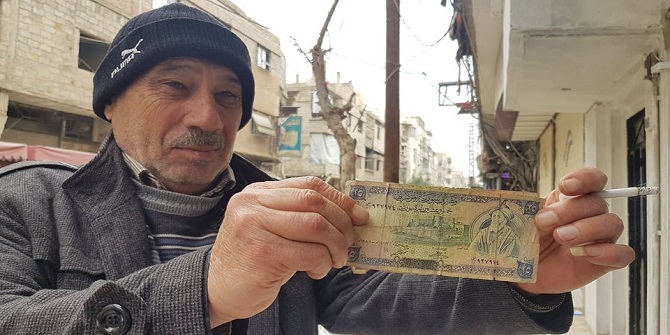

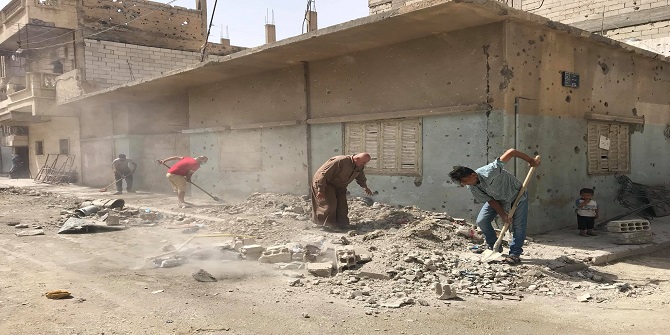
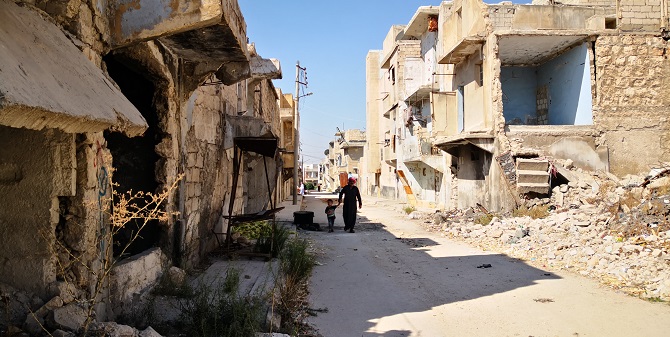
The main problem in Syria is not the sanctions which come from few years ago.
Syria supporting of terrorism since 1971 is the main issue; dictatorship of Hafiz Al-Assad and his son later as in North Korea is another factor; killing protesters civilians in all weapons including chemical additional factor too.
Changing the regime in peaceful way is the best solution for all Syrian including those who are in power now.
Withdrawal of Russian and Iranians and hizulla militants is the best solution as a start of rebuilding the country.
Western sanctions killing us.
End sanctions against Syria.
please,post my comment and don’t ignore it.